
The Vibrant Charm of Prenzlauer Berg
Nestled in the heart of Berlin, Prenzlauer Berg is a vibrant neighborhood that effortlessly combines old-world charm with modern flair. Known for its tree-lined streets, historic buildings, and a lively cultural scene, this area has become a magnet for tourists seeking a unique Berlin experience. Prenzlauer Berg boasts an array of cafes, restaurants, and boutique shops that cater to a diverse crowd. Whether you're looking to sip on a perfect cup of coffee, sample local German cuisine, or find one-of-a-kind souvenirs, this neighborhood has it all. The Mauerpark, a popular park in the area, is famous for its Sunday flea market and open-air karaoke sessions, drawing locals and tourists alike. Beyond its bustling streets, Prenzlauer Berg is rich in history. Many buildings still bear the marks of Berlin's tumultuous past, offering a glimpse into the city's history. The neighborhood's architecture ranges from beautifully restored pre-war buildings to contemporary designs, creating a visually appealing urban landscape. For families, the area is particularly welcoming, featuring numerous playgrounds and family-friendly activities. Cultural enthusiasts will appreciate the variety of galleries, theaters, and music venues that highlight both local and international talents. With its blend of history, culture, and modern amenities, Prenzlauer Berg is a must-visit destination for any Berlin traveler.
Local tips in Prenzlauer Berg
- Visit Mauerpark on a Sunday to experience the lively flea market and open-air karaoke.
- Explore the local cafes for a taste of Berlin's vibrant coffee culture.
- Take a walk through the neighborhood to appreciate the mix of historic and modern architecture.
- Check out the local galleries and theaters for a dose of culture and creativity.
- Families should make use of the numerous playgrounds and kid-friendly activities in the area.
The Vibrant Charm of Prenzlauer Berg
Nestled in the heart of Berlin, Prenzlauer Berg is a vibrant neighborhood that effortlessly combines old-world charm with modern flair. Known for its tree-lined streets, historic buildings, and a lively cultural scene, this area has become a magnet for tourists seeking a unique Berlin experience. Prenzlauer Berg boasts an array of cafes, restaurants, and boutique shops that cater to a diverse crowd. Whether you're looking to sip on a perfect cup of coffee, sample local German cuisine, or find one-of-a-kind souvenirs, this neighborhood has it all. The Mauerpark, a popular park in the area, is famous for its Sunday flea market and open-air karaoke sessions, drawing locals and tourists alike. Beyond its bustling streets, Prenzlauer Berg is rich in history. Many buildings still bear the marks of Berlin's tumultuous past, offering a glimpse into the city's history. The neighborhood's architecture ranges from beautifully restored pre-war buildings to contemporary designs, creating a visually appealing urban landscape. For families, the area is particularly welcoming, featuring numerous playgrounds and family-friendly activities. Cultural enthusiasts will appreciate the variety of galleries, theaters, and music venues that highlight both local and international talents. With its blend of history, culture, and modern amenities, Prenzlauer Berg is a must-visit destination for any Berlin traveler.
Unmissable attractions to see
Berliner Fernsehturm
Experience breathtaking views of Berlin from the iconic Berliner Fernsehturm, a must-visit landmark and dining destination in the heart of the city.
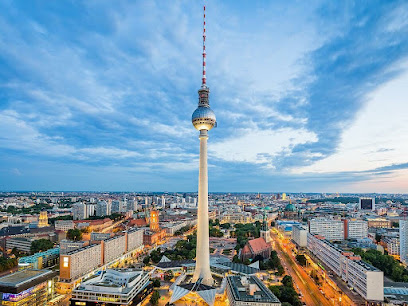
Berlin Wall Memorial
Explore the poignant Berlin Wall Memorial on Bernauer Strasse, a powerful symbol of division, remembrance, and the triumph of freedom.
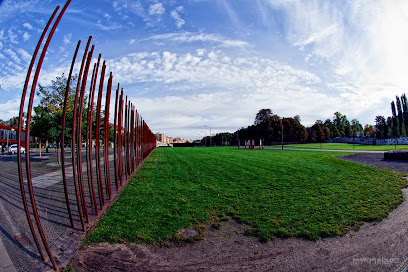
Mauerpark
Explore Berlin's vibrant heart at Mauerpark: history, flea market treasures, karaoke, and community spirit converge!
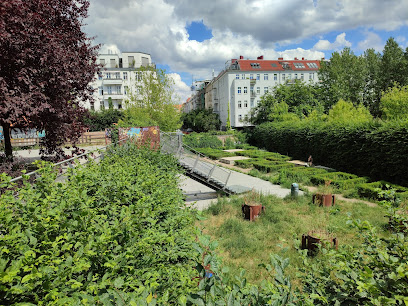
Volkspark Friedrichshain
Discover Berlin's oldest park: Volkspark Friedrichshain, a green oasis with fairy-tale charm, historical monuments, and recreational activities.
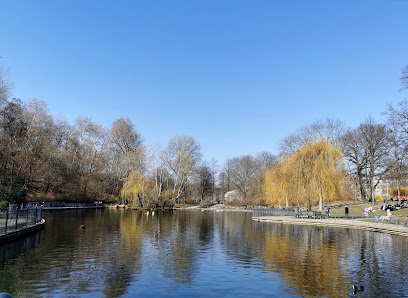
Lustgarten
A historic Berlin park on Museum Island offering a tranquil escape with lawns, a fountain, and the iconic granite bowl.
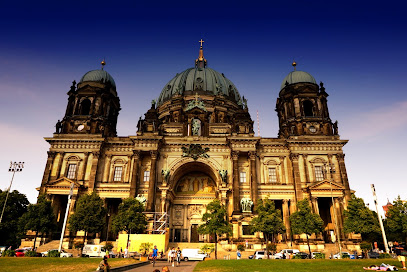
Kulturbrauerei
Experience the vibrant cultural scene at Kulturbrauerei, a historic brewery turned arts hub in Berlin, showcasing live music, theaters, and delightful dining.
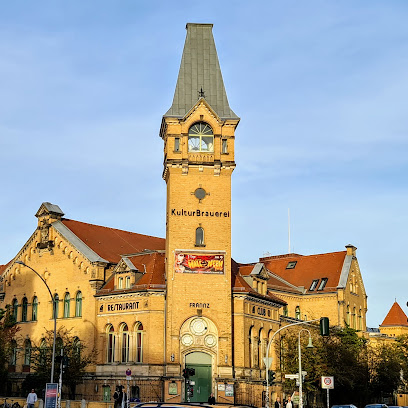
World Time Clock
A landmark in Alexanderplatz, Berlin, the World Time Clock displays times from across the globe, a symbol of unity and connection.
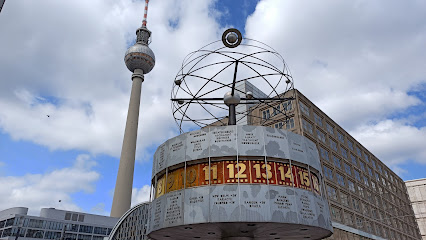
Märchenbrunnen
Discover a whimsical world of fairy tales at Berlin's Märchenbrunnen, a stunning fountain in Volkspark Friedrichshain.
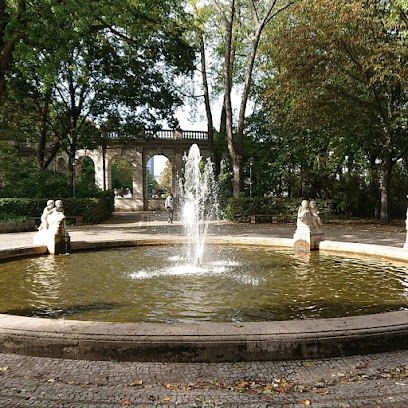
Kollwitzplatz
Experience Berlin's vibrant culture at Kollwitzplatz: historic square, lively markets, charming cafes, and artistic legacy in Prenzlauer Berg.
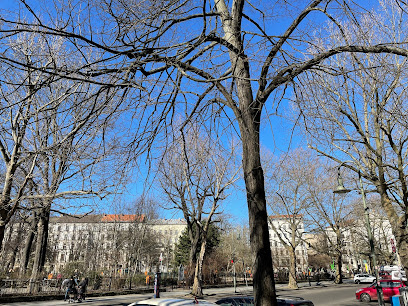
Museum at the Kulturbrauerei
Explore Berlin's GDR history at the Museum at the Kulturbrauerei, where fascinating exhibits and rich cultural narratives await.
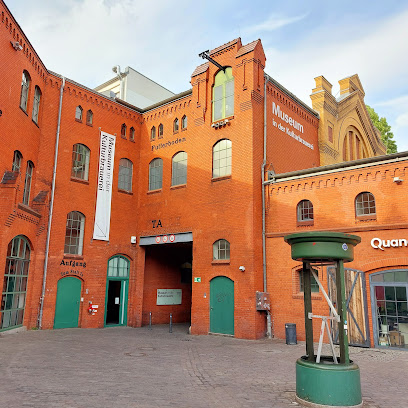
Zeiss Major Planetarium
Explore the universe in Berlin's iconic Zeiss Major Planetarium: a stellar fusion of science, culture, and immersive entertainment under a massive dome.
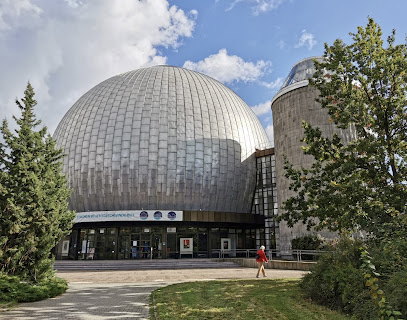
Volkspark Prenzlauer Berg
Escape to nature in Berlin's Volkspark Prenzlauer Berg, a unique urban oasis built on history with scenic views and recreational activities.
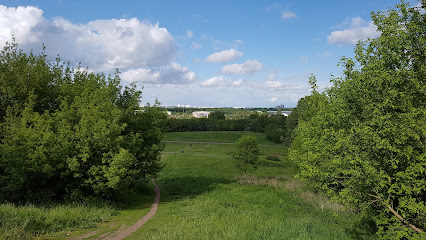
Ernst-Thälmann- Park
Explore Berlin's Ernst-Thälmann-Park: where socialist history meets green space in the heart of Prenzlauer Berg.
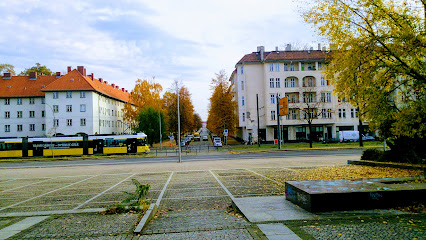
Park am Wasserturm
Discover Berlin's oldest water tower and a peaceful park with a poignant history in the heart of Prenzlauer Berg.
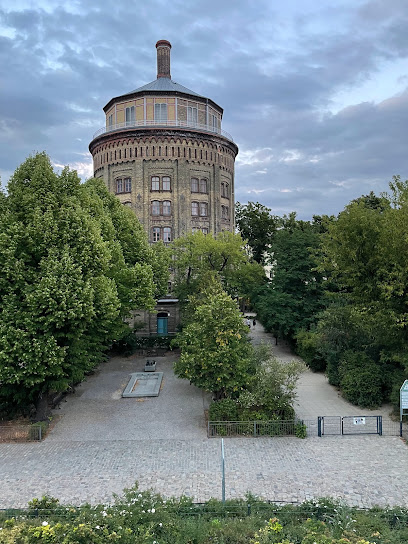
Wasserturm Prenzlauer Berg
Explore the historic Wasserturm Prenzlauer Berg, a beautiful landmark showcasing Berlin's architectural heritage amidst vibrant local culture.
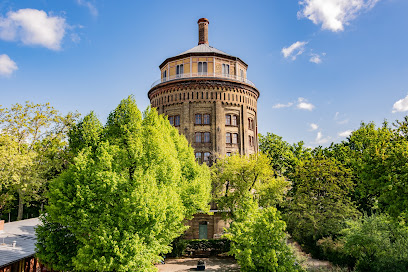
Essential places to dine
Zur Haxe
Experience the heart of Bavaria in Berlin at Zur Haxe – indulge in authentic German dishes in a cozy setting.
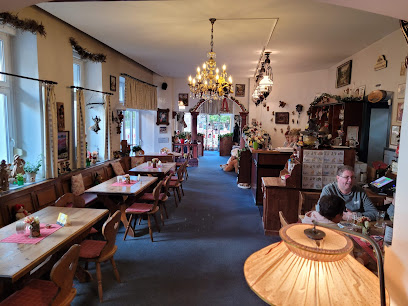
Zum Schusterjungen
Experience authentic German flavors at Zum Schusterjungen in Berlin's Pankow district - where tradition meets taste.
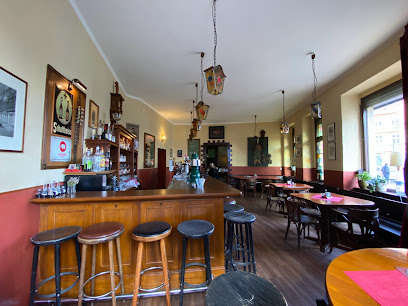
Mitho Cha! P-Berg
Discover authentic Nepalese flavors at Mitho Cha! P-Berg - where every dish tells a story.
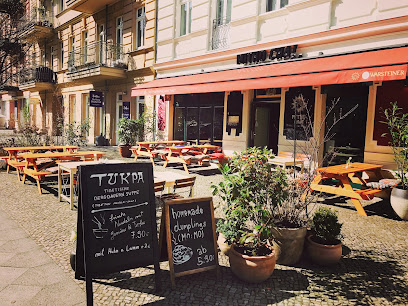
Masel Topf
Experience authentic Israeli flavors at Masel Topf in Berlin – where every dish tells a story.
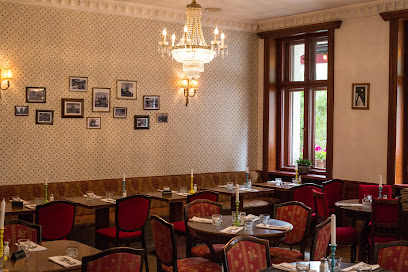
A-Petit Restaurant Berlin
Discover the flavors of Asia at A-Petit Restaurant in Berlin - a top destination for sushi lovers and Asian cuisine enthusiasts.
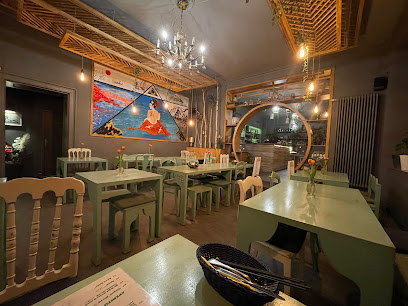
Frau Mittenmang
Experience authentic German cuisine at Frau Mittenmang in Berlin's Pankow district—where tradition meets taste.
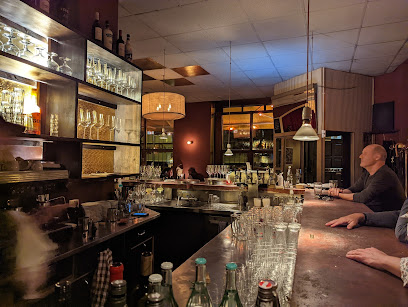
Restaurant Bricole
Experience culinary excellence at Restaurant Bricole in Berlin - where modern European flavors meet French tradition in an elegant setting.
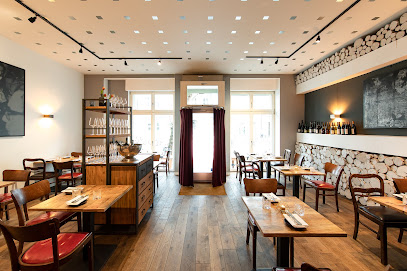
Holy Everest
Experience authentic Nepalese cuisine at Holy Everest in Berlin's Pankow district - where every dish tells a story!
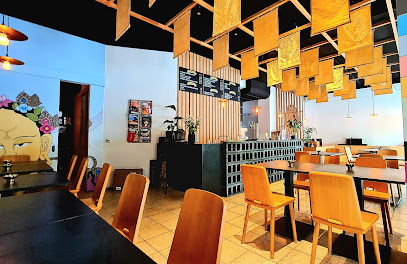
KUSHMANN'S X NEON
Discover KUSHMANN'S X NEON: A culinary delight blending Mediterranean cuisine with an exciting cocktail bar in the heart of Berlin.
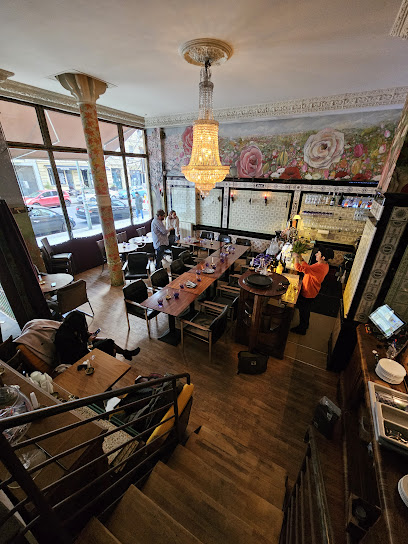
MaMi's Food&Wine
Discover culinary excellence at MaMi's Food&Wine in Berlin – where tradition meets innovation in every delicious bite.
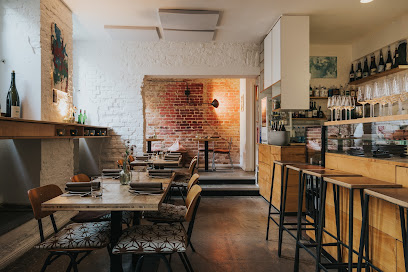
Markets, malls and hidden boutiques
Pauls Boutique-Berlin
Explore the vibrant thrift store, Pauls Boutique in Berlin, for one-of-a-kind vintage clothing and sustainable fashion treasures.
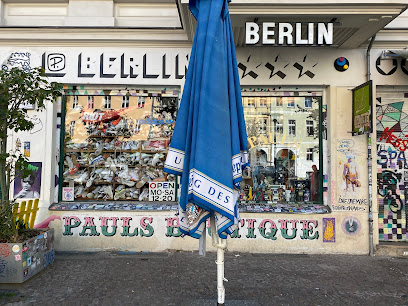
Soul Objects
Explore Soul Objects, a unique gift shop and art gallery in Berlin, showcasing handcrafted treasures, antiques, and local artistry.
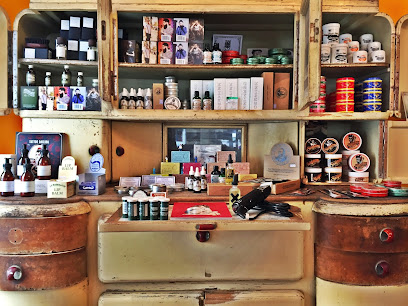
Loretta
Explore Loretta, Berlin's ultimate vintage clothing store, for unique fashion finds and a delightful shopping experience.
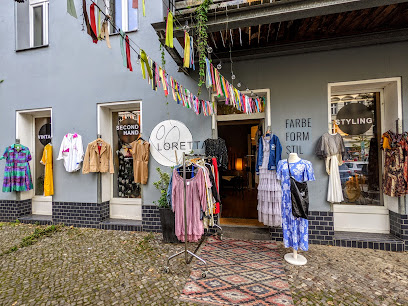
DEAR
Discover unique vintage finds at DEAR, Berlin's charming secondhand store in Pankow, where sustainable fashion meets eclectic style.
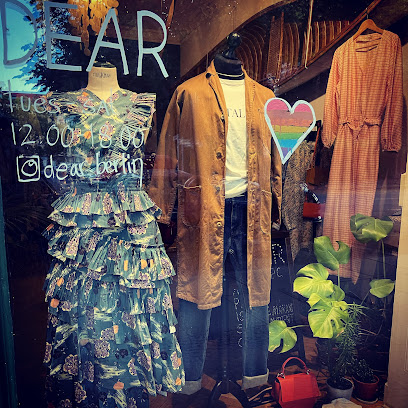
das goodshaus. Lifestyle Concept Store
Explore das goodshaus, a unique lifestyle concept store in Berlin, offering a delightful selection of gifts and artistic stationery.
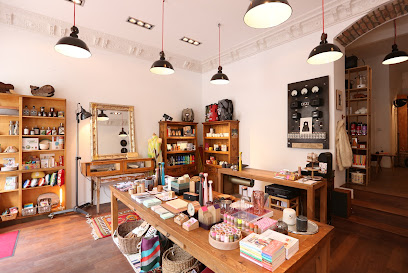
Jyoti - FairWorks
Explore Jyoti - FairWorks in Berlin for ethically sourced clothing, unique accessories, and a commitment to fair trade fashion.
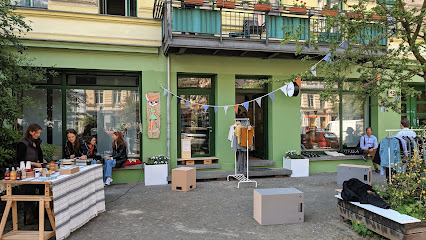
wunderwerk store Berlin-Prenzlauer Berg
Explore sustainable fashion at Wunderwerk Store in Berlin-Prenzlauer Berg, where contemporary design meets eco-conscious shopping.
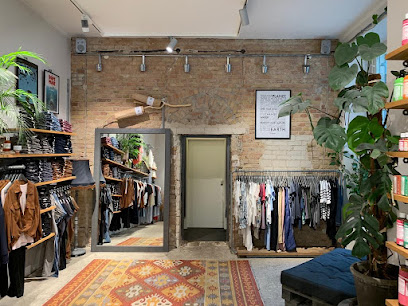
KNAACKPUNKT Vintage & New Design Clothing
Explore KNAACKPUNKT Vintage & New Design Clothing in Berlin - a blend of vintage charm and modern fashion for every style enthusiast.
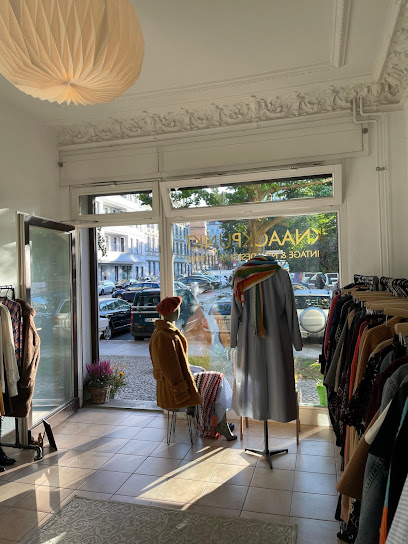
OFT Vintage Shop Berlin
Explore the eclectic charm of OFT Vintage Shop Berlin, a treasure trove of vintage clothing, antique furniture, and unique fashion accessories.
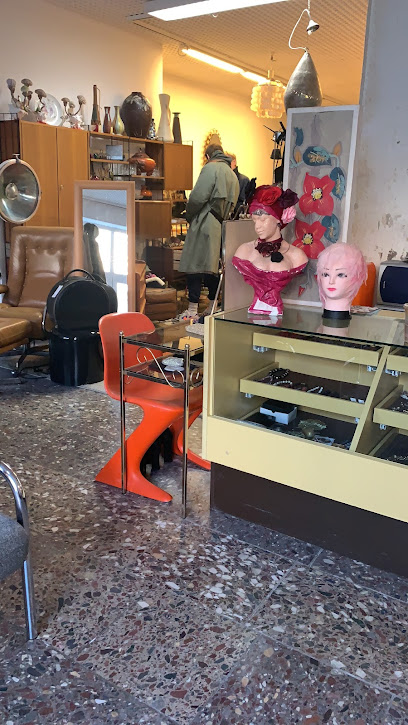
vintage
Explore a vintage store in Berlin's Pankow district, filled with unique treasures and timeless charm that reflect the city's rich history.
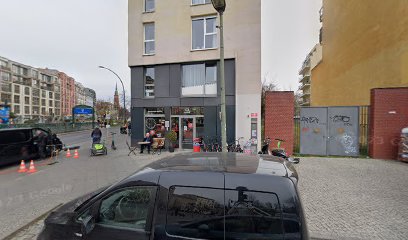
Essential bars & hidden hideouts
Zum Starken August
Immerse yourself in Berlin's vibrant nightlife at Zum Starken August, where circus magic meets a lively pub atmosphere for an unforgettable experience.
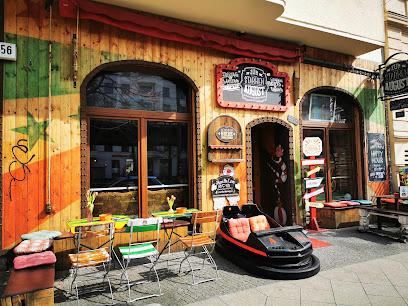
Badfish Bar
Experience the vibrant nightlife of Berlin at Badfish Bar, where expertly crafted cocktails and a lively atmosphere await you.
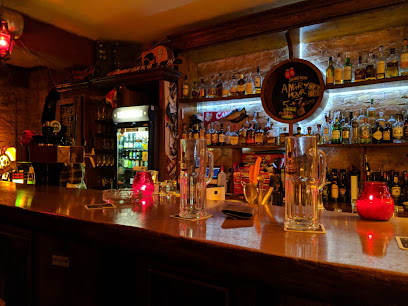
Zu mir oder zu dir
Discover the lively atmosphere and exquisite drinks at Zu mir oder zu dir, a must-visit bar in Berlin's Pankow district.
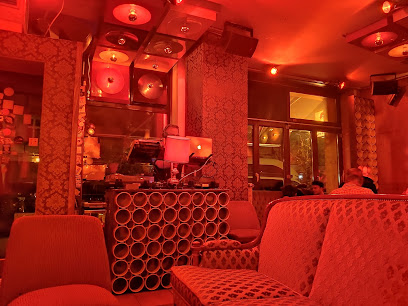
Saphire Bar
Experience exquisite cocktails and vibrant nightlife at Saphire Bar, a chic lounge in Berlin's Pankow district perfect for socializing and unwinding.
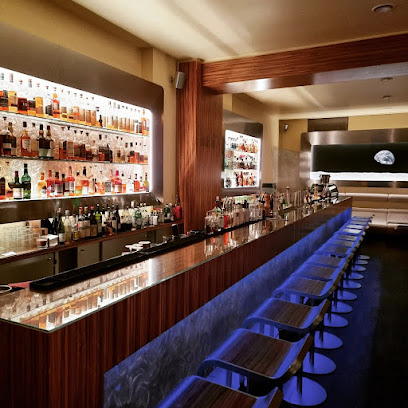
Bar 55
Experience the vibrant nightlife of Berlin at Bar 55, a cozy bar in Pankow offering a wide selection of drinks and a lively atmosphere.
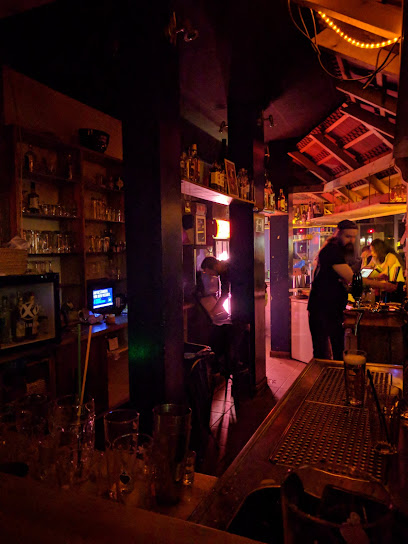
Bar Becketts Kopf
Experience the enchanting ambiance and exquisite cocktails at Bar Becketts Kopf, Berlin's premier cocktail bar in the heart of Pankow.
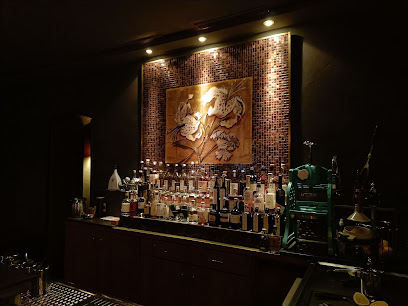
DieBar
Experience the vibrant nightlife at DieBar in Berlin's Pankow district, where great drinks and a lively atmosphere await every visitor.
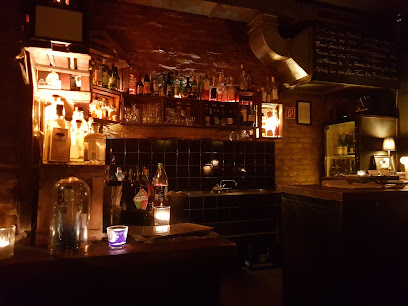
Höschen bar
Discover Höschen Bar in Pankow, Berlin - a vibrant cocktail bar known for its innovative drinks and cozy ambiance, perfect for a night out with friends.
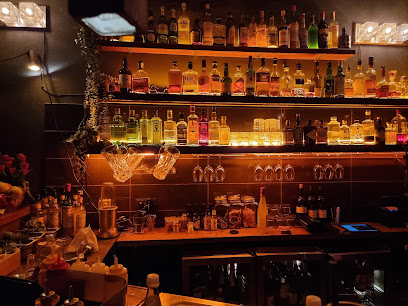
The Dorothy Bar
Discover Berlin's vibrant nightlife at The Dorothy Bar, where innovative cocktails and a cozy atmosphere create the perfect evening escape.
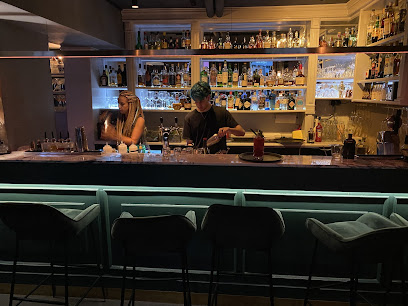
Bar Luxus
Discover the stylish ambiance and innovative cocktails at Bar Luxus, a must-visit nightlife destination in Berlin's Prenzlauer Allee.
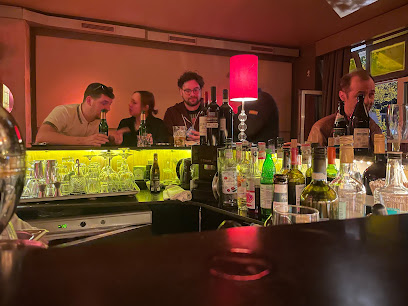
Local Phrases
-
- HelloHallo
[hah-loh] - GoodbyeAuf Wiedersehen
[owf vee-der-zay-en] - YesJa
[yah] - NoNein
[nine] - Please/You're welcomeBitte
[bit-teh] - Thank youDanke
[dahn-keh] - Excuse me/SorryEntschuldigung
[ent-shool-dee-goong] - How are you?Wie geht es dir?
[vee gayt es deer] - Fine. And you?Gut. Und dir?
[goot oont deer] - Do you speak English?Sprichst du Englisch?
[shprikhst doo eng-lish] - I don't understandIch verstehe nicht
[ikh fer-shtay-eh nikht]
- HelloHallo
-
- I'd like to see the menu, pleaseIch hätte gerne die Speisekarte, bitte
[ikh hett-eh gehr-neh dee shpy-zeh-kahr-teh bit-teh] - I don't eat meatIch esse kein Fleisch
[ikh ess-eh kine fly-sh] - Cheers!Prost!
[prohst] - I would like to pay, pleaseIch möchte bitte zahlen
[ikh merkht-eh bit-teh tsah-len]
- I'd like to see the menu, pleaseIch hätte gerne die Speisekarte, bitte
-
- Help!Hilfe!
[hill-feh] - Go away!Geh weg!
[geh vehg] - Call the Police!Ruf die Polizei an!
[roof dee poh-lee-tsigh ahn] - Call a doctor!Ruf einen Arzt an!
[roof i-nen ahrtz ahn] - I'm lostIch habe mich verirrt
[ikh hah-buh meekh feh-reet] - I'm illIch bin krank
[ikh been krunk]
- Help!Hilfe!
-
- I'd like to buy...Ich möchte kaufen...
[ikh merkht-eh kow-fen] - I'm just lookingIch schaue nur
[ikh shou-eh noor] - How much is it?Wie viel kostet das?
[vee feel koss-teht dahs] - That's too expensiveDas ist zu teuer
[dahs ist tsoo toy-er] - Can you lower the price?Kannst du den Preis senken?
[kahnst doo den prees zehn-ken]
- I'd like to buy...Ich möchte kaufen...
-
- What time is it?Wie spät ist es?
[vee shpayt ist es] - It's one o'clockEs ist ein Uhr
[es ist iyn oor] - Half past (10)Halb elf
[halb elf] - MorningMorgen
[mohr-gen] - AfternoonNachmittag
[nahkh-mit-tahg] - EveningAbend
[ah-bent] - YesterdayGestern
[geh-shtern] - TodayHeute
[hoi-teh] - TomorrowMorgen
[mohr-gen] - 1Eins
[iyns] - 2Zwei
[tsvai] - 3Drei
[dry] - 4Vier
[feer] - 5Fünf
[fuhnf] - 6Sechs
[zeks] - 7Sieben
[zee-ben] - 8Acht
[ahkt] - 9Neun
[noyn] - 10Zehn
[tsayn]
- What time is it?Wie spät ist es?
-
- Where's a/the...?Wo ist ein/der...?
[vo ist iyn/dehr] - What's the address?Was ist die Adresse?
[vas ist dee ah-dreh-seh] - Can you show me (on the map)?Kannst du mir (auf der Karte) zeigen?
[kahnst doo meer (ouf dehr kar-teh) tsigh-en] - When's the next (bus)?Wann kommt der nächste (Bus)?
[vahn kohmt dehr neh-khs-teh (boos)] - A ticket (to ....)Eine Fahrkarte (nach ....)
[iyn-eh fahr-kahr-teh (nahkh)]
- Where's a/the...?Wo ist ein/der...?
History of Prenzlauer Berg
-
Prenzlauer Berg's history began in the 19th century when it was a working-class neighborhood. The area saw rapid development during the Industrial Revolution, with factories and housing built to accommodate the growing population. The construction of the Berlin Ringbahn in the 1870s further integrated Prenzlauer Berg into the larger urban landscape of Berlin.
-
In the late 19th and early 20th centuries, Prenzlauer Berg became a hotbed for socialist movements and labor activism. The neighborhood hosted numerous strikes and demonstrations, contributing to the establishment of workers' rights in Germany. The iconic 'Kulturhaus' and other venues served as centers for political gatherings and cultural activities.
-
During World War II, Prenzlauer Berg suffered extensive damage due to bombings. The post-war period saw significant destruction yet laid the groundwork for rebuilding efforts under East German governance. The reconstruction focused on creating communal living spaces, and many of the neighborhood's buildings reflect the architectural style of that era.
-
Under the German Democratic Republic (GDR), Prenzlauer Berg remained a vital area, characterized by its cultural vibrancy and community spirit. Despite the regime's constraints, the neighborhood became known for its artistic scene, with numerous artists, writers, and musicians calling it home. The 'Kino Babylon' and various galleries emerged as cultural landmarks.
-
Following the reunification of Germany in 1990, Prenzlauer Berg underwent significant gentrification. The influx of new residents and investment revitalized the area, transforming it into a trendy neighborhood filled with cafes, boutiques, and art spaces. The preservation of historic buildings mixed with modern developments reflects the dynamic cultural landscape of contemporary Berlin.
Prenzlauer Berg Essentials
-
Prenzlauer Berg is well-connected to the rest of Berlin through public transport. The U-Bahn (subway) stations Eberswalder Straße and Schönhauser Allee serve the area, providing easy access from central locations like Alexanderplatz. Tram lines M1 and M10 also run through Prenzlauer Berg, offering connections to other neighborhoods. From Berlin Hauptbahnhof (main train station), take S-Bahn line S3, S5, S7, or S9 to Alexanderplatz, then switch to U-Bahn line U2 or tram line M10.
-
In Prenzlauer Berg, public transport is efficient and convenient. The U-Bahn, trams, and buses are easily accessible. The area is also bike-friendly, with numerous bike rental shops available for those who prefer cycling. Walking is another great way to explore the picturesque streets, parks, and cafes. Ride-sharing services are also popular for longer distances.
-
Prenzlauer Berg is generally considered a safe neighborhood for tourists. However, it's advisable to take standard precautions, especially at night. Areas like the northern parts near the Mauerpark can sometimes attract larger crowds and petty crime, so remain vigilant about your belongings. Avoid poorly lit streets at night and be cautious in crowded places.
-
In case of an emergency, dial 112 for fire and ambulance services or 110 for police assistance. Familiarize yourself with the locations of nearby hospitals such as the Charité or other local clinics. It's advisable to carry a basic first-aid kit and have travel insurance that covers medical emergencies.
-
Fashion: Do wear comfortable shoes for walking; Prenzlauer Berg's charm lies in its walkable streets. Don't wear overly casual clothing in upscale restaurants. Religion: Do respect local customs when visiting places of worship. Public Transport: Do validate your ticket before boarding. Don’t engage in loud conversations or phone calls. Greetings: Do greet people with a friendly smile; a casual 'Hallo' is common. Eating & Drinking: Do try local beers and street food; don’t bring outside food or drinks into restaurants.
-
To experience Prenzlauer Berg like a local, visit the weekly markets at Kollwitzplatz for fresh produce and artisan goods. Spend time in Mauerpark on Sundays for the flea market and karaoke sessions. Explore hidden courtyards and local cafes off the main streets. Engage with local residents and be open to trying traditional German dishes, especially at family-run eateries.
Nearby Cities to Prenzlauer Berg
-
Things To Do in Potsdam
-
Things To Do in Szczecin
-
Things To Do in Leipzig
-
Things To Do in Dresden
-
Things To Do in Rostock
-
Things To Do in Lubeck
-
Things To Do in Poznan
-
Things To Do in Erfurt
-
Things To Do in Hannover
-
Things To Do in Hamburg
-
Things To Do in Karlovy Vary
-
Things To Do in Prague
-
Things To Do in Wroclaw
-
Things To Do in Hradec Králové
-
Things To Do in Plzeň













